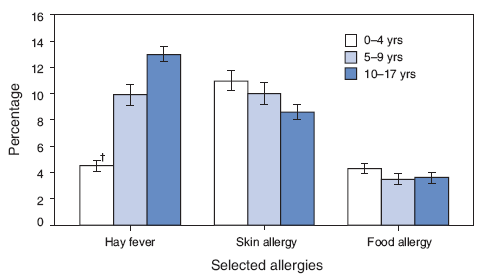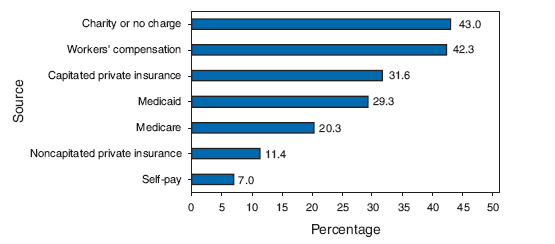Sunday, December 16, 2007
Patients pay only 14% of health care costs? Wow.
-
Printer Friendly|#| Trackback
Free the market; Government interference hampers healthcare reform
"In a system in which medical care seems free or is artificially inexpensive, with someone else paying for one's healthcare, medical costs spiral out of control because we are encouraged to demand medical services without having to consider their real price. For every dollar's worth of hospital care a patient consumes, that patient pays only about 3 cents out of pocket; the rest is paid by third-party coverage. And for the healthcare system as a whole, patients pay only about 14%."
This article has several nice pieces of data.
Wednesday, July 4, 2007
Dark Chocolate Proven Healthy, Again
-
Printer Friendly|#| Trackback
JAMA: Effects of Low Habitual Cocoa Intake on Blood Pressure and Bioactive Nitric Oxide
"Results: From baseline to 18 weeks, dark chocolate intake reduced mean (SD) systolic BP by –2.9 (1.6) mm Hg (P < .001) and diastolic BP by –1.9 (1.0) mm Hg (P < .001) without changes in body weight, plasma levels of lipids, glucose, and 8-isoprostane. Hypertension prevalence declined from 86% to 68%. The BP decrease was accompanied by a sustained increase of S-nitrosoglutathione by 0.23 (0.12) nmol/L (P < .001), and a dark chocolate dose resulted in the appearance of cocoa phenols in plasma. White chocolate intake caused no changes in BP or plasma biomarkers.
Conclusions: Data in this relatively small sample of otherwise healthy individuals with above-optimal BP indicate that inclusion of small amounts of polyphenol-rich dark chocolate as part of a usual diet efficiently reduced BP and improved formation of vasodilative nitric oxide."
With a change of roughly 3 systolic points and 2 diastolic points I'm not going to stop taking my Prinivil just yet.....
Wednesday, April 18, 2007
PA Ranks Second in Total Dollars Paid in Malpractice Claims
-
Printer Friendly|#| Trackback
At the same website mentioned in the preceding post one can find information on total dollars paid in malpractice cases in 2006. Pennsylvania ranked second with $308,781,000 paid (second only to New York). See for yourself.
Vermont looks pretty good to me right now...
PA Ranks Third in Paid Malpractice Claims
-
Printer Friendly|#| Trackback
The Kaiser Family Foundation maintains StateHealthFacts.org, a site "designed to provide free, up-to-date, and easy-to-use health data on all 50 states". The site just published Number of Paid Medical Malpractice Claims, 2006. Pennsylvania ranks third among all states in number of malpractice claims paid per thousand physicians. See for yourself.
Thursday, March 29, 2007
Resolved: C. diff enterocolitis should be a reportable disease
-
Printer Friendly|#| Trackback
The CDC just published their Summary of Notifiable Diseases --- United States, 2005
I wonder why C. diff enterocolitis isn't on the list? I've seen this illness cause more morbidity and mortality in the United States than the big long list they do track...
MMWR: Percentage of Children with Selected Allergies
-
Printer Friendly|#| Trackback

"During 2003--2005, the percentage of children with hay fever increased with age; children aged 10--17 years were nearly three times as likely to have hay fever than children aged 0--4 years. In contrast, the percentage of children with skin allergies decreased with age, and the percentage of children with food allergies did not vary with age."
Tuesday, March 27, 2007
New Study on Malpractice Costs
-
Printer Friendly|#| Trackback
Pacific Research Institute:
JACKPOT JUSTICE: The True Cost of America's Tort System
Processing....
Thursday, March 15, 2007
CDC: Insurance Affects New Patient Acceptance
-
Printer Friendly|#| Trackback
Percentage of Office-Based Primary-Care Physicians Who Did Not Accept New Patients, by Expected Payment Source --- National Ambulatory Medical Care Survey, United States, 2003--2004

"Although 94.2% of primary-care physicians reported in 2003--2004 that they were accepting new patients, acceptance varied by the patient's expected payment source. Among the physicians, 43.0% did not accept new charity cases, 29.3% did not accept new Medicaid patients, and 20.3% did not accept new Medicare patients. Only 7.0% did not accept new patients who self-paid."
Wednesday, February 21, 2007
JAMA: Off-Pump vs On-Pump CABG and Cognitive Decline
-
Printer Friendly|#| Trackback
Five years after surgery, there is no difference in cognitive decline between on-pump and off-pump CABG.
Cognitive and Cardiac Outcomes 5 Years After Off-Pump vs On-Pump Coronary Artery Bypass Graft Surgery
"Results After 5 years, 130 patients were alive in each group. Cognitive outcomes could be determined in 123 and 117 patients in the off-pump and on-pump groups, respectively. When using a standard definition of cognitive decline (20% decline in performance in 20% of the neuropsychological test variables), 62 (50.4%) of 123 in the off-pump group and 59 (50.4%) of 117 in the on-pump group had cognitive decline (absolute difference, 0%; 95% confidence interval [CI], –12.7% to 12.6%; P>.99). When a more conservative definition of cognitive decline was used, 41 (33.3%) in the off-pump group and 41 (35.0%) in the on-pump group had cognitive decline (absolute difference, –1.7%; 95% CI, –13.7% to 10.3%; P = .79). Thirty off-pump patients (21.1%) and 25 on-pump patients (18.0%) experienced a cardiovascular event (absolute difference, 3.1%; 95% CI, –6.1% to 12.4%; P = .55). No differences were observed in anginal status or quality of life.
Conclusion In low-risk patients undergoing CABG surgery, avoiding the use of cardiopulmonary bypass had no effect on 5-year cognitive or cardiac outcomes."
[free full text]
| |
1 |
2 |
3 |
4 |
5 |
| 6 |
7 |
8 |
9 |
10 |
11 |
12 |
| 13 |
14 |
15 |
16 |
17 |
18 |
19 |
| 20 |
21 |
22 |
23 |
24 |
25 |
26 |
| 27 |
28 |
29 |
30 |
|
|
Dec May
|


![]()